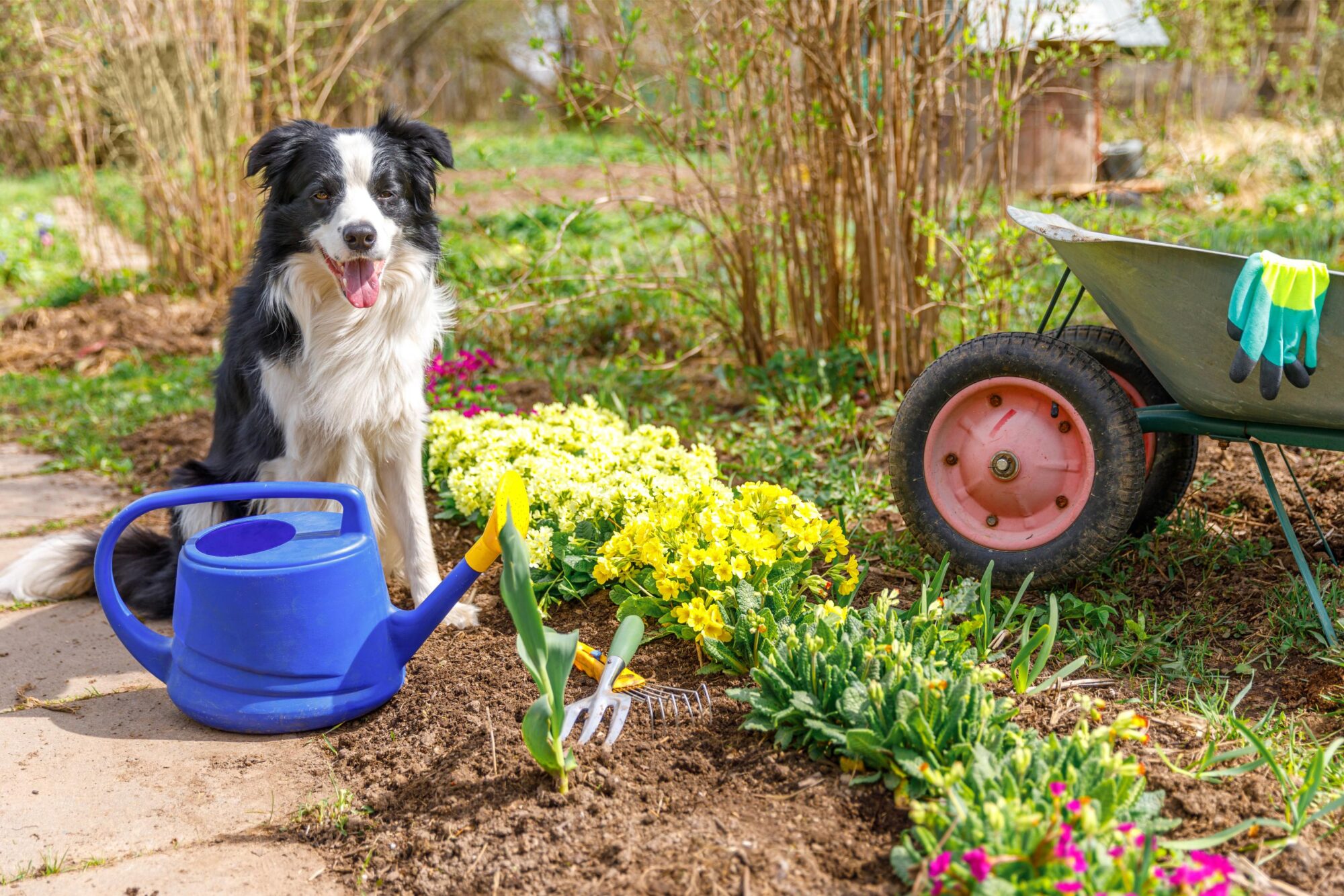Cultivating Pet-Friendly Gardens—A Green Haven for You and Your Furry Friends

When you have pets, it is important to know exactly what’s in the garden or around the property. An innocent exploration in the backyard could lead to big trouble if your pet comes into contact with a toxic plant. Whether a pet likes to sniff, eat, or sleep on garden plants according to their whim, we’re here to help steer them towards a safer environment.
Outdoor Spaces for Pets
The spring is an excellent time for pets to enjoy a little extra time outdoors. Naturally, outdoor fun can coincide with a pet owner that also enjoys a green thumb. There are many lovely desert plant varieties that cause zero harm to pets, such as:
- Hibiscus
- Nasturtium
- Zebra plant
- Rosemary
- Christmas cactus
- Gaura
- Yellow bells
- Chuparosa
- Marigolds
- Hoya
- African violets
- Begonias
- Fairy dusters
- Queen’s wreath
- Texas sage
- Coleus
- Roses
It’s a good idea to label all of your plants. If you inherited certain landscaping varieties, download a plant identification app to help you understand the possible risk to pet health.
What to Avoid
If you have any of the following plant varieties in your pet’s outdoor space, please don’t wait for them to decide they want to eat it one day. Relocate the plant to a friend or neighbor and replace it with something from the list above. These plants can create extremely hazardous health outcomes for pets:
- Sago palm
- Call lily
- Azalea
- Castor bean
- Cyclamen
- Jimson weed
- Century plant
- Dumb cane
- Aloe vera
- Texas mountainside laurel
- Firesticks
- Rubber tree
- Bird of paradise
- Pothos
- Snake plant
- Desert rose
- Lantana
- Oleander
Side effects of pet poisoning from toxic plants can include vomiting, GI tract upset, organ failure, and even death. Please contact us if you know or suspect a pet poisoning. We always provide urgent care for walk-ins. The Arizona Poison and Drug Information Center can be reached at 1-800-222-1212.
Water-Wise Gardens and Heat Safety
Water conservation is a priority for many homeowners in Arizona. As such, installing and maintaining a xeriscape garden can be a viable option, provided all the chosen plants are safe for pets. Without a designated grassy patch outside, pets may grow confused about where to urinate or defecate. Keeping a little area of grass may be feasible, but there are artificial turf products that support healthy hygiene while meeting a pet’s bathroom needs.
Additionally, installing a catio, or cat-patio, or specific dog-run area can improve a pet’s enrichment opportunities. Be sure these enclosures are thoroughly shaded, well-ventilated, and full of creature comforts like cool, clean water, toys, perches, beds, and more.
Pet-Friendly Gardens and OUtdoor Spaces
Please give us a call at (480) 787‑0544 with any questions or concerns about your pet’s outdoor space. Our team at Curem Veterinary Care is always here to help.
